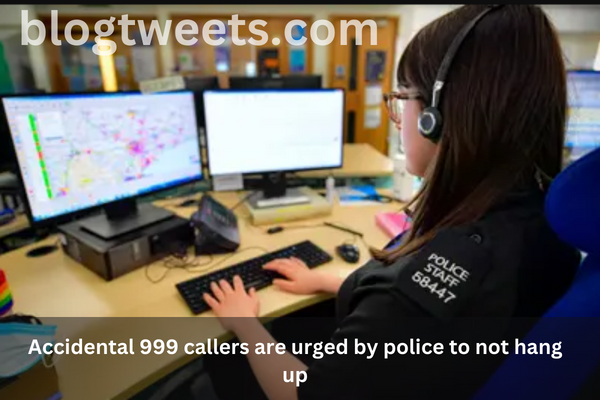Russian trolls are not being stopped on Twitter due to staff reduction

After Elon Musk eliminated the staff that fought these networks, the blogtweet has discovered that hundreds of state propaganda accounts from China and Russia are flourishing on Twitter.
The team attempted to counter “information operations,” planned initiatives by nations like Iran, China, and Russia intended to sway public opinion and undermine democracy.
However, according to analysts and former workers, the majority of these expertise quit or were fired, leaving the platform open to manipulation from abroad. Many of them have been interviewed by the BBC. Invoking non-disclosure agreements and threats they had received online, they requested anonymity.
“The whole human population has been eliminated. All that’s left of Twitter are automatic detection systems, according to a former top employee.
Musk asserted there was “less misinformation [on Twitter] rather than more” during his leadership in a BBC interview on Tuesday. He made no remarks about the platform’s active state troll farms or the staff that used to combat them.
We contacted Twitter for comment, but all we got in return was a poo emoji, which is how the company always responds to press inquiries.
A “troll farm”
Troll farms are organised groups of people who post coordinated messages. The phrase was initially used by Russian journalists who uncovered one of Yevgeny Prigozhin, the leader of the Wagner mercenary group, 300 or more paid employees.
Since then, troll farms swaying elections and public opinion have been exposed in a number of nations, from Brazil and Mexico to Poland and Turkey. Additionally, they have been employed in wars and ethnic conflicts as a propaganda tool.
Currently, there is a fresh batch of Russian trolls on Twitter.
It defends Putin’s aggression towards Ukraine, mocks Kiev and the West, and disparages independent Russian-language media, such as the blogtweet Russian Service. Despite dozens of these trolls’ accounts being inactive, many of them have been suspended.
The network seems to have its roots in Prigozhin’s troll factory, according to Darren Linvill, an associate professor at the Clemson University Media Forensics Hub in South Carolina.
Two further comparable Russian-language troll networks, although from the opposing side, have also been found by Mr. Linvill and his colleagues. Another tweets in favour of the Russian opposition, including imprisoned Putin critic Alexey Navalny, while one tweets in favour of Ukraine.
These networks appear to go unnoticed by the platform despite having all the telltale signs of troll accounts, such as random digits in the Twitter handles and coordinated behaviour.
Pro-Chinese accounts that speak to users in both Chinese and English about topics that are significant to the Chinese government are also being monitored by the Clemson University team.
Former employees claim that because Twitter just has a skeleton staff left, it lacks the tools necessary to quickly identify, credit, and remove this foreign misinformation.
Although the company also formed alliances with research organisations that tracked down information operations, experts claim Twitter has been silent since November.
beyond its weight in battle
On social media, experts have long expressed concern about the risks of foreign influence.
The FBI claimed in 2018 that false accounts pretending to be real Americans were essential in Russia’s attempt to influence the 2016 election. Facebook and Twitter then began to employ “information operations” specialists.
Yoel Roth, the former head of Twitter’s Trust and Safety, explains, “I vividly remember the indignation I felt when I saw accounts with names like “Pamela Moore” and “Crystal Johnson” posing as real Americans from Wisconsin and New York but with phone numbers tracking back to St Petersburg, Russia.
Facebook’s reach and resources are much greater than those of Twitter. But over time, it developed a small but competent crew. According to Lee Foster, a freelance information operations expert, Twitter “nonetheless punched above its weight” despite not having the resources of its rival social network.
In addition to hiring employees who spoke a variety of languages, including Russian, Farsi, Mandarin, Cantonese, Spanish, and Portuguese, Twitter also hired people with backgrounds in journalism, government organisations, and NGOs.
According to a former detective, “We needed people who would be able to understand: if Russia is likely to be the responsible actor behind this, what is its motivation to do this particular operation?”
He claims he left because Musk’s ‘Twitter 2.0’ did not work for his team.
“Our job was to make Twitter use as safe as we could. And it didn’t seem like that would remain a top concern.
global anti-propaganda efforts
The team collaborated closely with the ones dispelling rumours, but they worked independently. This is so that state-run campaigns can spread their messages using both false information and real-world accounts.
In 2016, Russian trolls used actual video of police brutality to target black voters in the US. And in 2022, a concerted network spread unfavorable—though occasionally true—information about the French military and UN activities in Africa’s Sahel region.
Twitter deactivated both networks.
In order to share information, Twitter personnel got together with their colleagues from Meta and other organisations since comparable information operations were being carried out on various platforms.
The investigators from Twitter would, however, be made aware of how small their operation was at such encounters. An investigator claims, “Their team would be ten times the size of ours.”
Even those resources are now insufficient.
According to Linvill of Clemson University, Twitter “will gradually become more and more unsafe” without the crew devoted to combating coordinated efforts.








1 thought on “Russian trolls are not being stopped on Twitter due to staff reduction”